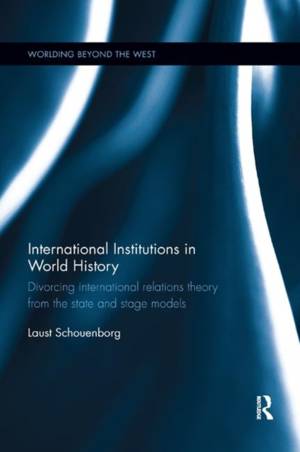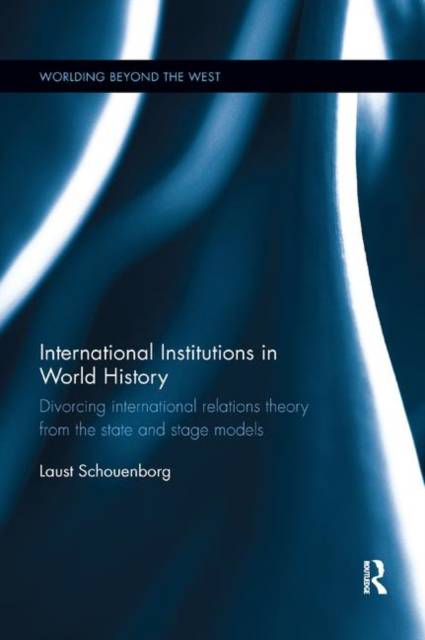
- Afhalen na 1 uur in een winkel met voorraad
- Gratis thuislevering in België vanaf € 30
- Ruim aanbod met 7 miljoen producten
- Afhalen na 1 uur in een winkel met voorraad
- Gratis thuislevering in België vanaf € 30
- Ruim aanbod met 7 miljoen producten
International Institutions in World History
Divorcing International Relations Theory from the State and Stage Models
Laust SchouenborgOmschrijving
This book presents a case for a basic reorientation of International Relations away from the state and towards the study of social institutions in the sense of patterned practices, ideas and norms/rules. IR has always suffered from a parochial occupation with the state and the Western system of state. Its main theories revolve around these phenomena, and have resulted in the reification of the state: it has been turned into an essential actor, with certain immutable and fundamental properties that remain constant throughout time. A list of these properties usually includes territorial limits, centralisation, monopolisation of violence and exclusive loyalties.
International Institutions in World History shows how the state is an inherently modern phenomenon, a modern social institution, and that foundational concepts in IR should be based on a full appreciation of the wider record of human existence on earth, trans-historically and cross-culturally. Schouenborg argues that these social institutions may be captured via a universal functional typology consisting of four categories: legitimacy and membership; regulating conflicts; trade; and governance.
The book will be of interest to scholars and students within IR (particularly IR theory), anthropology, archaeology and sociology, and those interested in general social theory.
Specificaties
Betrokkenen
- Auteur(s):
- Uitgeverij:
Inhoud
- Aantal bladzijden:
- 176
- Taal:
- Engels
- Reeks:
Eigenschappen
- Productcode (EAN):
- 9780367884284
- Verschijningsdatum:
- 12/12/2019
- Uitvoering:
- Paperback
- Formaat:
- Trade paperback (VS)
- Afmetingen:
- 156 mm x 234 mm
- Gewicht:
- 272 g

Alleen bij Standaard Boekhandel
Beoordelingen
We publiceren alleen reviews die voldoen aan de voorwaarden voor reviews. Bekijk onze voorwaarden voor reviews.









